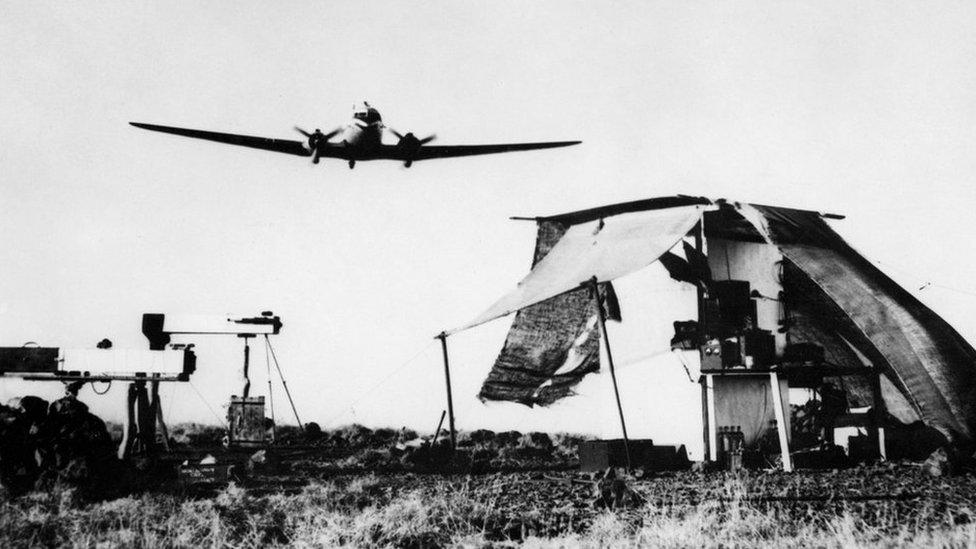Nuclear test veterans to be honoured with medal after campaign
- Published
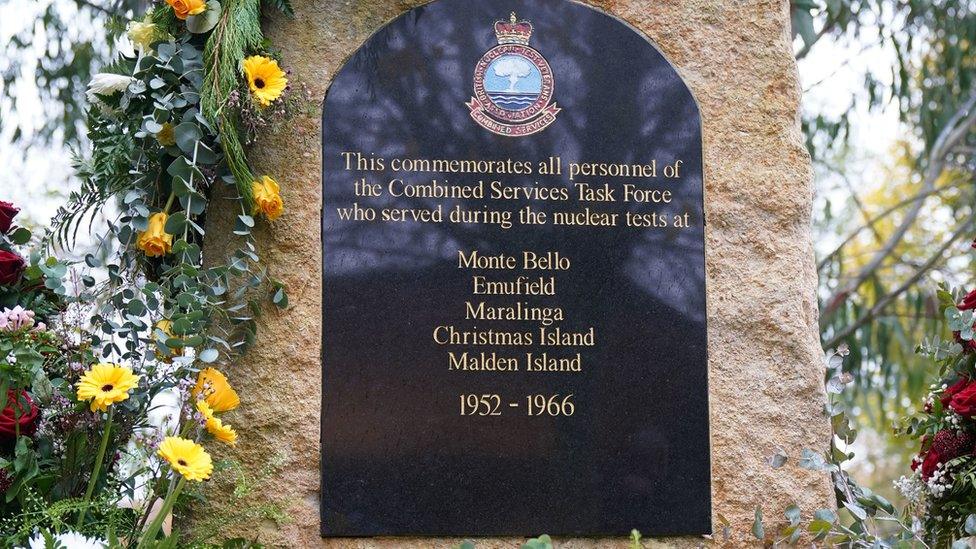
The plaque for the Nuclear test veterans at the National Memorial Arboretum in Alrewas, Staffordshire
Veterans who took part in the UK's nuclear testing programme will receive a new medal after years of campaigning.
About 22,000 people will be eligible for the Nuclear Test Medal, introduced to mark 70 years since the first test.
Downing Street said the honour commemorates contributions by members of the armed forces, scientists and local employees from the UK, Australia, New Zealand, Fiji and Kiribati.
A service was held at the National Memorial Arboretum on Monday.
The announcement comes after groups including the Labrats International charity spent several years campaigning for atomic test survivors to be recognised.
Alan Owen, who founded the charity for atomic test survivors, was inspired after his father James, from Cheltenham, took part in the nuclear testing on Christmas Island in 1962 when he was 21.
His father died from heart conditions at the age of 52 in 1994, but Mr Owen kept campaigning over the years for veterans to be honoured with a medal for their services.
He said: "It's great the government is starting to recognise the veterans.
"For me it is going to be an emotional day because I will be representing him and my sister will be there and we will be laying flowers in his memory."
Rishi Sunak tells Britain’s nuclear test veterans they will be eligible for the honour to commemorate their work
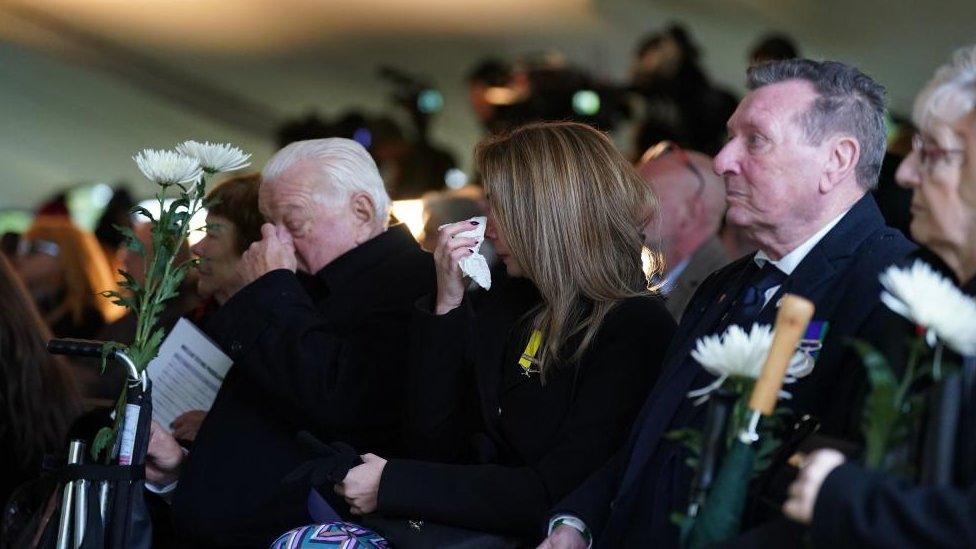
Veterans and their families attended the commemoration service
Prime Minister Rishi Sunak described the medals as "an enduring symbol of our country's gratitude" for those involved in the test programme.
He said: "Their commitment and service has preserved peace for the past 70 years, and it is only right their contribution to our safety, freedom and way of life is appropriately recognised with this honour."
The prime minister joined Veterans' Minister Johnny Mercer and Defence Secretary Ben Wallace as families commemorated veterans at the National Memorial Arboretum event in Staffordshire on Monday.
Mr Mercer said: "This medal honours those who served far from home, at a crucial time in our nation's history."
Labour's shadow defence secretary John Healey called the medals a "huge victory" for the nuclear test veterans.
He said: "It is long-overdue recognition of the risks they faced in service and the lasting consequences their families suffer."
Those who worked under UK command during tests between 1952 and 1967 will be able to apply for the medal.
It can also be awarded posthumously to veterans' families.
Downing Street said the first awards will be made next year.
It represents an about turn for the government, which previously said those who took part in the nuclear tests would not be eligible for a medal.
A spokeswoman said last year: "While it falls outside the criteria for medallic recognition, this in no way diminishes the contribution of those service personnel who witnessed the UK's nuclear tests."
Listen to BBC Radio 4's full series on the legacy of Britain's nuclear testing here.
Related topics
- Published8 July 2013
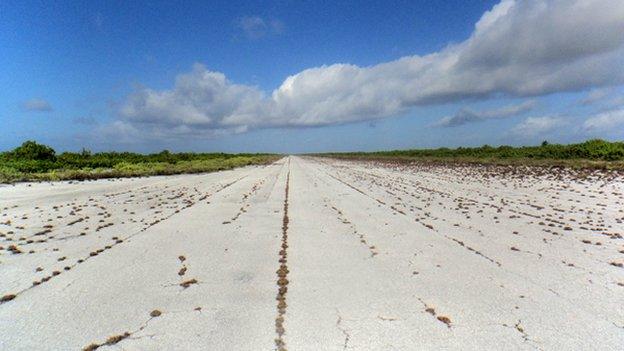
- Published30 June 2022
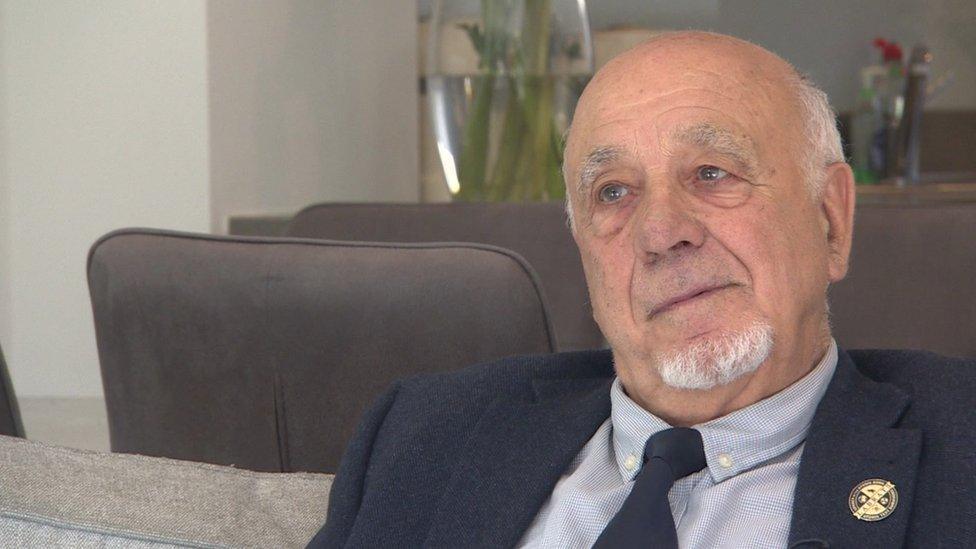
- Published3 October 2022
